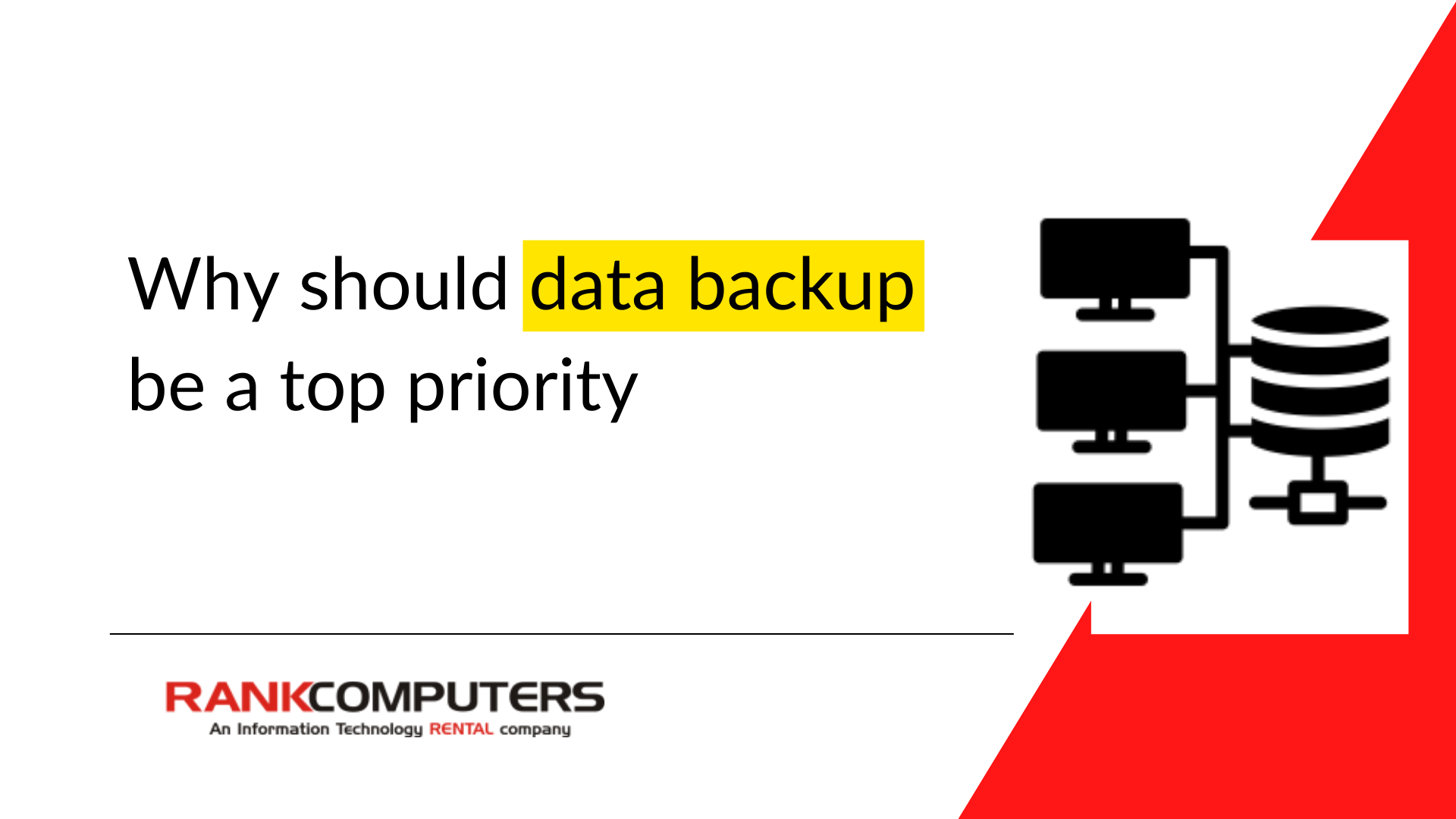Most companies overlook data backup, which is a crucial factor, and they learn the lesson the hard way. Have you ever heard of stories about businesses closing down in a single day as a result of significant data loss and reputational damage? While it may not be a common occurrence, the risk of data loss exists on a daily basis, and a single data storage solution will not help you overcome the risk; however, having a data backup and recovery plan will.
Every company relies on data for a variety of purposes, and as the importance of data increases, it is becoming essential to have a backup plan in place.
How do you back up?
Choosing to backup is a good first step toward protecting yourself from the effects of data loss. However, there is still a choice to be made. With technological advancements, every decision now has multiple options, making it difficult to choose the best one. When it comes to backups, there are two popular options: on-site servers and cloud servers.
Cloud servers have recently grown in popularity, and the benefits they provide are influencing businesses to choose them over traditional servers. However, the decision should also take into account your business niche and the best option for your company. As a result, we will discuss both briefly and analyse their benefits and drawbacks.
On-site backup
All storage devices that are in your place of business and help with backup are referred to as on-site backups. Whether you manage a small or large business, you keep storage devices on hand that contain critical data about your company and the clients it serves. These storage devices can be external hard discs or drives. On-site backup is a traditional method of data backup because the concept of storing important data on external devices has been around for quite some time.
Some of the key benefits of on-site backup are that you have better control over your storage, data retrieval is convenient and quick, and you do not have to pay storage fees when you use on-site backup.
The most common disadvantages of on-site backup are that data recovery can be complicated at times, you must buy multiple devices or build large storage to save more data, data will be lost if the devices are lost, and unlimited storage is not available.
Backup to the cloud
Cloud backup is a third-party backup that can function as a secondary server and help you store your data away from your company’s premises. It entails creating a cloud storage account to which you will have access to all data that you upload. Cloud servers are a better option than on-site backup solutions because of the convenience and security they provide for data.
The main benefits of cloud backup solutions are that they provide convenient and easy access to data backup, safeguard your data from disaster loss, provide additional security for your data, and provide unlimited storage.
Cloud backup solutions have a few drawbacks, including the fact that they require a high-speed internet connection and, in some cases, a high subscription fee.
Why should you have a backup?
Now that we’ve answered the question “how” it’s time to answer the question “why”. Despite the fact that backup options are quite popular in the market, many businesses do not take them seriously. If you are one of them, the following reasons will help you understand why backup is a necessity rather than an option.
Prevents Data Loss
The first reason may seem obvious, but it is the most important reason for having a backup plan and solution. Data loss may appear to be a common problem, but it is not caused by a single factor. It could happen for a variety of reasons, and understanding those causes will help you avoid data loss.
How does data loss occur?
Data loss can occur easily if your hardware fails, your software encounters a bug, your employees make a mistake and your business experiences downtime. These are just a few common causes of data loss, and almost every company experiences data loss due to one or more of these causes. If you are adamant about not having a backup plan and choose to continue in this manner, you will be on the verge of data loss every day.
Whether it’s downtime or a system failure, having a backup of your data will help you deal with the situation calmly. You will have all data available and accessible if you have a backup solution that protects your data. When you have a backup solution, you can be confident that your data is safe even in the most unexpected situations.
Saves the Company During Disasters
When you hear the word disaster, don’t just think of natural disasters like cyclones or tornadoes. Businesses face a variety of disasters, including financial disasters, technological disasters, and personnel disasters. Disasters are always unexpected and sudden, and no matter what type of disaster occurs or how severe the consequences are, you can save your company by having all of your data stored as a backup.
Businesses cannot function in the absence of data. If you are facing a disaster, the situation will deteriorate. Whether or not the disaster affects your data, storing it securely on a backup device will allow you to carry on with your business operations without interruption.
Facilitates Remote Work
The pandemic has passed, and remote work is no longer as popular as it was a year ago. However, several companies continue to allow their employees to work remotely, and others in a hybrid setting. Many small businesses are making use of the remote environment to complete their work using employees from various areas of the country.
A backup solution for all your data will be ideal in situations such as remote settings and hybrid settings. Because your office will be closed for the majority of the time and you cannot work with the risk of any of your employees losing data, having a backup will be extremely beneficial.
Reduces the Impact of Ransomware
Ransomware is becoming a serious problem for many businesses, particularly healthcare organisations. While cyber threats that cause data loss are already a major issue, paying a ransom for the data will be more difficult. Even if you have a skilled cybersecurity team, ransomware can be unavoidable at times, and your company may become a victim.
In such circumstances, you cannot afford to lose all of your data and should have a backup plan – a backup solution – in place. Data backups will protect you from the risks of cyberattacks and save you the trouble of losing all data.
Gives You Peace of Mind
While backup can protect your business from data loss, cyber-attacks, and disasters, the ultimate benefit is peace of mind. Backing up your data is a good practice that will benefit your company in a variety of ways during difficult times. You don’t have to worry about disasters, accidents, or attacks wreaking havoc on your business if you have a backup.
Conclusion
Regardless of the size of your business or the importance of your data, having a good backup solution will help you navigate the crisis with ease. You can choose between traditional backup solutions and cloud backup solutions, depending on what is best for your business. A good backup plan will include both traditional and cloud backup options. Therefore, we would advise you to choose your ideal backup solution and implement it as soon as possible to ensure that operations run smoothly.



